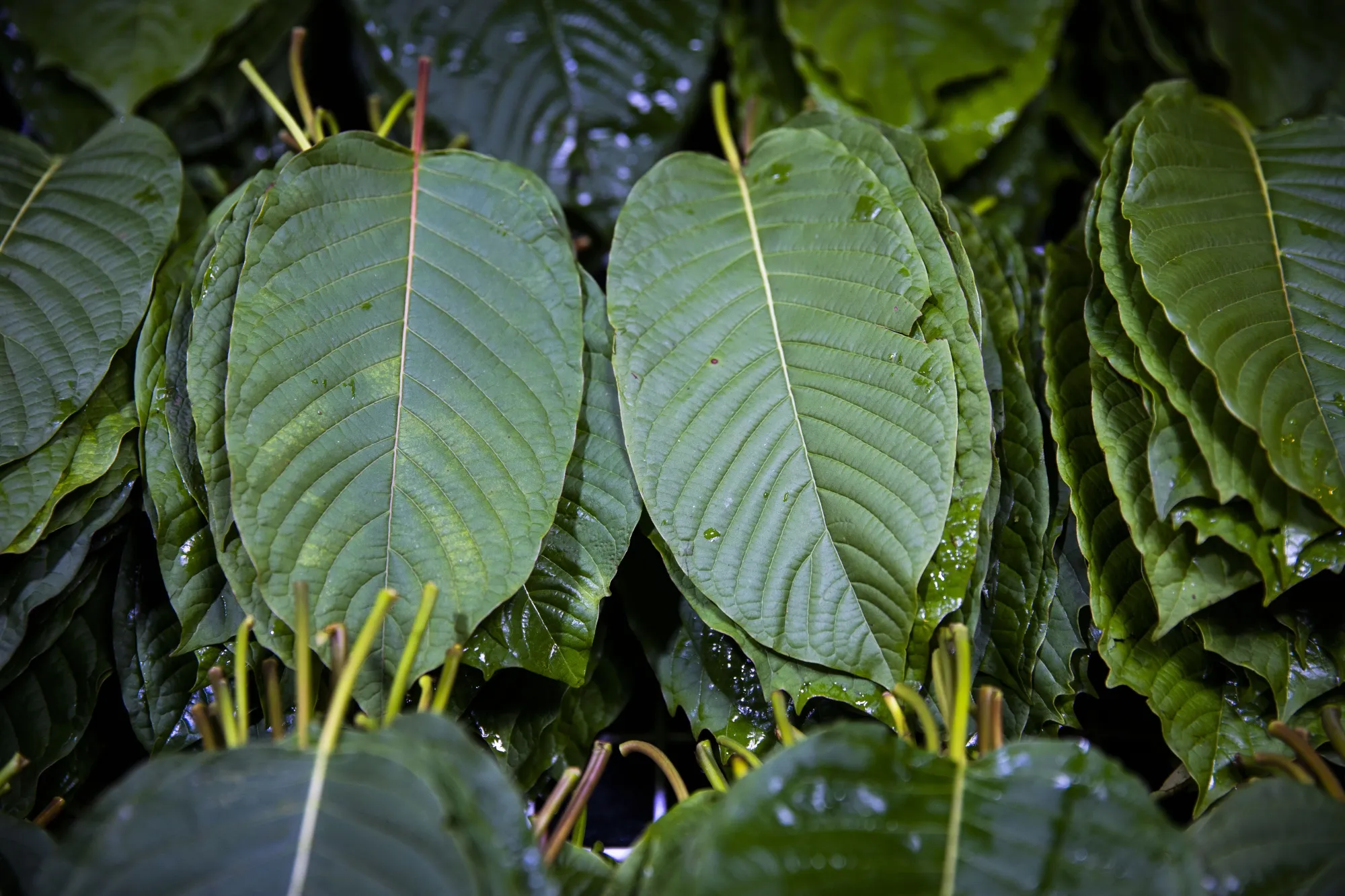
Lauren Decicca/Getty Images

Audio By Carbonatix
The following content is sponsored by Proven Theory.
Florida is the new battleground for 7-Hydroxy, also known as 7-OH, a natural remedy that gives individuals with chronic pain a botanical alternative to opioids. James Uthmeier, Florida’s attorney general, recently made it illegal for anyone to possess, sell or distribute isolated or concentrated forms of 7-Hydroxy in the state.
Uthmeier is among the government officials in Arizona, Utah and the Federal Drug Administration declaring war on 7-Hydroxy, mischaracterizing the natural alkaloid found in the kratom plant as an opiate that must be pulled off retail shelves to prevent a public health crisis. Proponents of 7-Hydroxy fear that Florida will instead follow in the footsteps of Arizona and Utah, the only other states with total 7-Hydroxy bans. Arizona and Utah have experienced a rise in opioid deaths as people in recovery are again turning to heroin, Oxycontin and fentanyl.
A Sudden Crackdown
Will you step up to support New Times this year?
We’re aiming to raise $30,000 by December 31, so we can continue covering what matters most to you. If Miami New Times matters to you, please take action and contribute today, so when news happens, our reporters can be there.
For nearly two years, 7-Hydroxy has been sold in smoke shops, convenience stores, and wellness boutiques across the United States. Emerging in late 2023, the compound quickly developed a following among people seeking non-opioid pain relief. Unlike fully synthetic pharmaceuticals, 7-Hydroxy is a natural metabolite of mitragynine, the main alkaloid in kratom, a tropical plant long used in Southeast Asia for pain management and focus.
Florida moved swiftly to outlaw the substance. Uthmeier announced that concentrated or isolated forms of 7-Hydroxy would be classified as a controlled, Schedule I substance in the state. The decision sent a jolt through manufacturers, small retailers, and consumers alike, suddenly criminalizing possession and distribution of a product that, by some counts, had been consumed in more than 500 million doses nationwide without a documented single fatality, says Matt Schwarmann of the Holistic Alternative Recovery Trust (HART).
Supporters argue that the ban is misguided and potentially dangerous, shifting patients and recreational users alike back toward opioids. “I think most people’s point of view is that this is insanity,” Schwarmann says. “There’s no evidence of a public health crisis. There isn’t one reported death.”
At a recent press conference, neither Uthmeier nor FDA Commissioner Marty Makary presented any data or statistics to back up their statements that 7-Hydroxy causes overdoses and deaths, Schwarmann adds.
Schwarmann and other advocates point to data from the Centers for Disease Control showing that opioid deaths declined nationally in 2024 for the first time in decades, with steep drops in states where 7-Hydroxy was most widely available. FDA Commissioner Marty Makary Brendan Smialowski/AFG via Getty Images

“States like West Virginia dropped 42 percent, Virginia 42 percent, Missouri 37 percent, and Florida itself saw huge declines,” Schwarmann says. “Meanwhile, the only two states that banned it – Utah and Arizona – were the only ones where opioid deaths went up.”
The Science Behind 7-OH
Support from medical researchers has fueled much of the resistance to Florida’s ban. Dr. Philip Gao, president of KanPro Research, describes 7-Hydroxy as pharmacologically distinct from opioids. “It is only a partial antagonist compared to opiates that are full antagonists,” he explains. “In simple terms, that means it does not depress your respiratory system in the same way an opiate does.”
Individuals who have been addicted to opiates can use 7-Hydroxy to provide the same pain relief without the risk of overdosing, Gao says.
Gao and others cite multiple safety studies, including animal trials in which dogs were administered large doses with no evidence of overdose. Reports from users also suggest benefits in managing chronic pain and addiction recovery. Still, many medical voices caution that human research is incomplete and the long-term risks remain unknown.
7-OH Natural, Not Synthetic
One of the fiercest debates surrounding 7-Hydroxy concerns whether or not it should be considered a “synthetic drug.” Regulators insist that concentrated forms fall closer to synthetic opioids than natural products. Advocates strongly dispute that characterization.
“7-Hydroxy is a naturally occurring substance in the kratom plant,” Schwarmann explains. “It’s also the metabolite your liver converts traditional kratom into.”
Banning 7-Hydroxy could lead people who use it to consume larger amounts of kratom, which is harder on the liver and kidneys, Schwarmann notes.
Gao echoes the skepticism of the “synthetic” label.
“To begin with, all 7-Hydroxy is derived from the kratom plant,” Gao says. “It’s not built from the ground up, like fentanyl. Think of Vitamin C tablets: We didn’t go out and squeeze 100 oranges for one pill; we synthesized Vitamin C. That doesn’t make Vitamin C a dangerous synthetic.”
7-OH Addiction and Regulation
Critics of 7-Hydroxy argue that even if it’s not lethal, the product is habit-forming and could create a new generation of dependency. While Schwarmann and Gao acknowledge that the substance is “habit-forming,” they argue that such framing misses the point.
“Coffee is addictive, too,” Schwarmann notes. “I’ll give you the example I use. My wife is wonderful, but if she doesn’t get two cups of coffee by 10 a.m., I’m in trouble. That doesn’t mean I’m going to demand that we ban Starbucks. Just because something is addictive or habit-forming doesn’t make it evil or bad.”
Rather than prohibition, proponents of 7-Hydroxy advocate for regulation – age restrictions, product testing, and clear labeling. “At HART, we actually support reasonable regulations like 21-plus to purchase and no advertising to children,” Schwarmann says.
Economic Forces at Play
The political battle is also entwined with industry economics. Traditional kratom companies, which have dominated the niche supplement market for decades, see 7-Hydroxy as a threat to their market share. A 20-milligram dose of 7-Hydroxy may substitute for thousands of milligrams of kratom powder, drawing customers away from established players.
“The large kratom companies have lost huge amounts of market share to 7-Hydroxy makers,” Schwarmann says. “Groups like the American Kratom Association and the Global Kratom Coalition are literally bragging online about pushing legislation that hurts 7-Hydroxy, all while some companies have been openly selling products with 2.7% hydroxy content for years.”
The fight also mirrors broader tensions in U.S. drug policy. Proponents argue that bans will push consumers back to the black market, increasing the risks of fentanyl exposure and funding cartels. “Every single person who buys a 7-Hydroxy tablet instead of a fentanyl product isn’t just protecting themselves,” Gao says. “They’re also pulling money out of drug cartels and injecting it into small businesses.”
Public Health or Political Theater?
What frustrates advocates most is the lack of clear evidence cited by regulators. Schwarmann points to flawed studies used in policymaking, including one that tested injectables in mice, a method that critics argued was irrelevant since 7-Hydroxy is only sold orally. “That study was probably the most flawed study of all time,” Schwarmann says. “Nowhere in the world is 7-Hydroxy used as an injectable product.”
For advocates, the danger lies not in 7-Hydroxy itself, but in what users might turn to if denied access to it. “Somewhere in the neighborhood of 300,000 to 400,000 Floridians use this product,” Schwarmann says. “Those people aren’t suddenly going to say, oh, I don’t need pain relief anymore. The alternatives are oxy, Percocet, fentanyl – products that are dangerous and will kill you.”
While Florida’s ban is in effect, state officials say enforcement will focus first on clearing retail shelves rather than arrests. Legal challenges are rumored, and advocacy organizations plan to rally public pressure and push for legislative review.